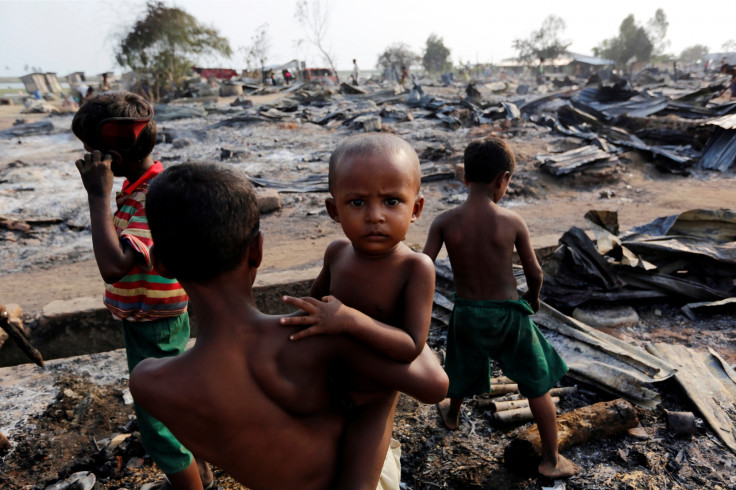Anti-Muslim violence in Myanmar risks radicalising the Rohingya population
Islamist groups like al-Qaeda and the Islamic State have referred to the plight of the Rohingya in their material.
Violence against the marginalised Rohingya Muslim population in Myanmar is increasing the threat of radicalisation to the benefit of jihadist groups, a new report from the International Crisis Group (ICG) found.
The report highlights a new phase of Muslim insurgency in the country, where security forces have led a crackdown against the Rohingya people in the Rakhine State after an ambush against border police positions on 9 October killed nine policemen.
The attack sparked a wave of violence in the following days, which a UN official said has "ethnic cleansing" as an end goal. In an interview with the BBC, refugee agency UNHCR official John McKissick denounced the Myanmar military and Border Guard Police for engaging in "collective punishment of the Rohingya minority", including "killing men, shooting them, slaughtering children, raping women, burning and looting houses".
More than 21,000 Rohingya people have already fled to neighbouring Bangladesh in recent weeks, the International Organisation for Migration (IOM) has claimed, to escape the violence.
The 9 October attack was blamed on an insurgent group called Harakah al-Yaqin (Faith Movement, HaY). According to the ICG report, the group is run by a committee of Rohingya emigres in Saudi Arabia and commanded on the ground by Rohingya with international training and experience in modern guerrilla war tactics.
The group was formed after communal violence in 2012 in which more than 100 people were killed and about 140,000 displaced in Rakhine State, most of them Rohingya. It enjoys considerable support in an area that would otherwise not be radicalised, but where the local population has endured long-standing discrimination, denial of rights and lack of citizenship.
According to the report, Islamist groups such as al-Qaeda in the Indian subcontinent and the Islamic State (Isis/Daesh) have referred to the plight of the Rohingya in their material, and the combat experience of at least some of the HaY fighters suggested links to international militants.

The ICG investigation warned: "The current use of disproportionate military force in response to the attacks, which fails to adequately distinguish militants from civilians, together with denial of humanitarian assistance to an extremely vulnerable population and the lack of an overarching political strategy that would offer them some hope for the future, is unlikely to dislodge the group and risks generating a spiral of violence and potential mass displacement."
The exploitation of the suffering of Myanmar's Muslim population for the global jihadist agenda needs to be fought through dialogue, the report recommended, creating stronger, more positive relations between Muslim communities and the Myanmar state, as well as closer cooperation and intelligence sharing with regional countries.
The Rakhine State in south-west Myanmar has a majority of Muslim Rohingyas, who are considered stateless minorities. They live in segregated conditions and have been dubbed by the UN as one of the world's most persecuted ethnic minorities.
Aung San Suu Kyi, the de facto leader of Myanmar, has come under increasing international pressure to end the discrimination of the Rohingyas. Former UN chief Kofi Annan was tasked with finding ways to resolve the matter.
© Copyright IBTimes 2025. All rights reserved.






















